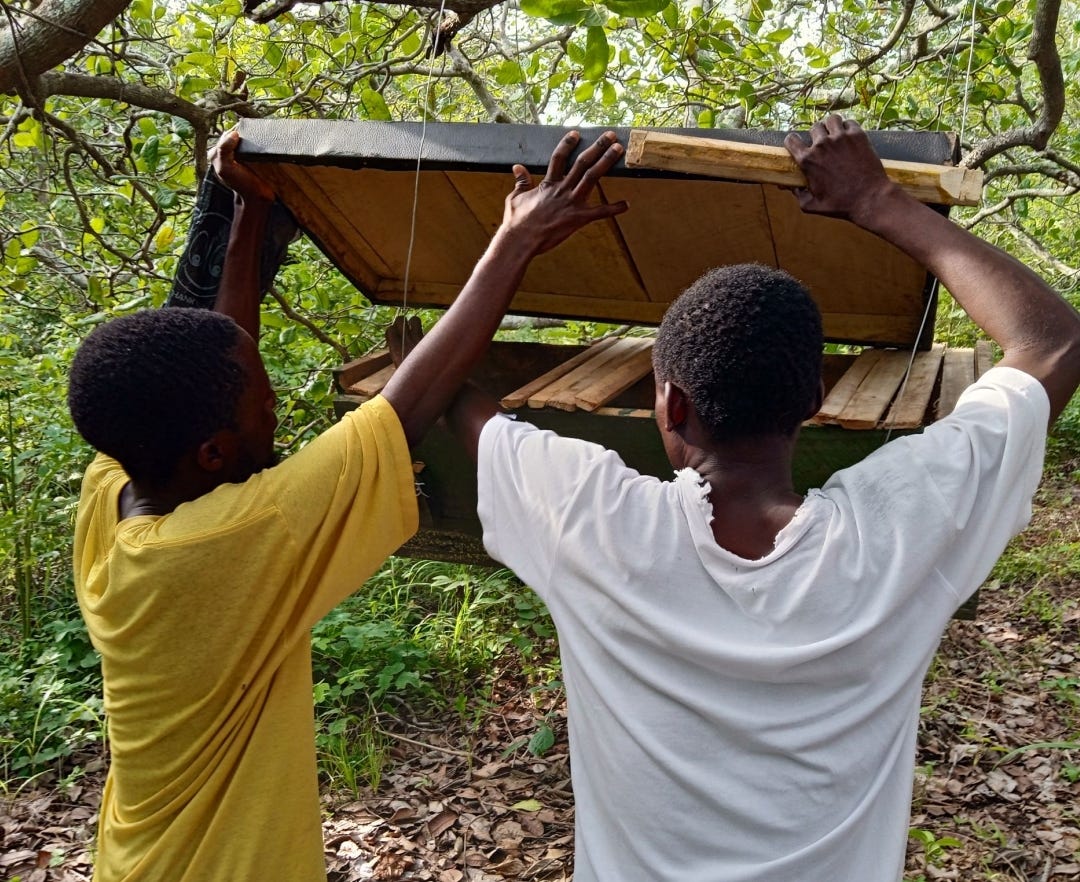Mzinda Youth Club Thrives Through Bee-Keeping and Value Addition to Agricultural Products
MANGOCHI, Malawi-Members of a group of young individuals from Mzinda village Traditional Authority Namkumba in Mangochi district, known as Mzinda Youth Club, say they are registering positive life changes among the youth through bee-keeping and value addition to agricultural products, writes Ernest Mfunya.
The club started in 2017 with 10 members focusing on environmental conservation by planting trees and, at the same time, sensitising communities with messages on the importance of conserving the environment through drama.
Following positive feedback on the interventions, the group decided to also start an agri-business as a way of improving their livelihoods while continuing with their environmental conservation work.
"Besides all the work that we are doing, we ventured into bee-keeping, and in 2021 we bought three beehives, which we placed in trees, but due to a lack of capacity in the management of beehives, we did not harvest any honey," disclosed Hamuza Jafali, a member of the club.
According to Jafali, their failure in the first year did not discourage them but motivated them to ask for support from well-wishers who would assist them financially or with capacity building on how bee-keeping farming is conducted.
Titukulane Project came to their rescue assisting them with 10 beehives in addition to capacity building.
Jafali added that, following the support, the bee-keeping business is bringing double benefits to the club.
"Aside from earning us money, beekeeping promotes the care of our forest reserves because that's where we place our hives for bees to build their nests," added Jafali.
He added that after realising profits from the sale of honey, the group reinvested the money back into the business and shared the remaining funds among the members.
Majidu Danger, Chairperson of the club, attributed the success of the business to unity and teamwork within the club, considering that farming is usually not common among the youth in most parts of the country.
He said through the group's activities, many young people in the area are changing their mindset on farming and are taking up farming as a business.
Danger added that the club plans to buy equipment to be used in processing honey, stating that currently the processing is done manually, which demands more manpower and time.
"Our goal is to see the club grow into a large company and improve the livelihood of fellow youths and the community as a whole by providing them with job opportunities and nutritious products. We also would like to have a healthy community by ensuring that the environment is conducive," he stated.
Melia Kasauka, 27, a member of the club, said that through the benefits that she gets from the business, she is able to support her family.
Kasauka said, "Our lives are changing for the better because of the money that the sale of honey brings. In addition to that, I have also gained experience in farming as a business. I have a garden where I cultivate vegetable crops, which helps feed my family and fulfil their basic needs."
Furthermore, using profits realised from the club's bee farming sales, Kasauka is able to pay school fees for her sibling.
Ester Dick also hailed the bee farming business for improving her life.
"With the profits we shared after harvesting and selling the honey, I started selling banana fritters, a business that has brought significant changes to my life. I am now able to support my family and buy basic needs for myself," Dick said.
One bee hive has the potential to produce fifty 250-millilitre bottles of honey. According to Dick, the group anticipates selling each bottle for 1,500 kwacha.
With ten beehives already in place, the club anticipates making up to 750,000 kwacha.
The Mzinda Youth Club is now comprised of 25 people, 11 of whom are women.



